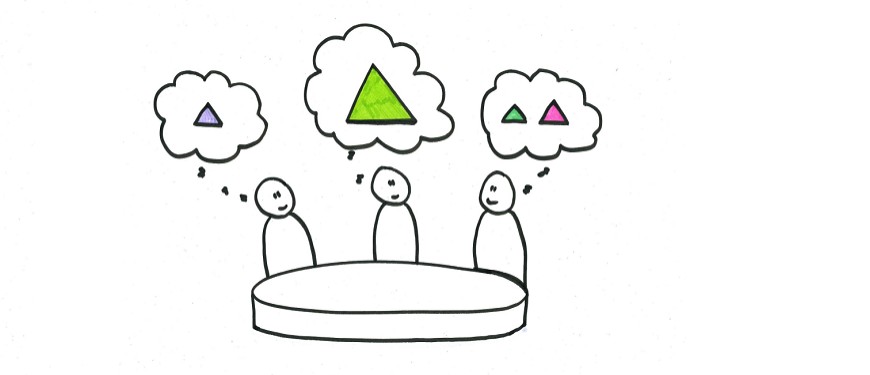Read, listen and learn about study groups
There can be many reasons to meet with your group
Study groups can, for example, function as:
- Sparring and discussion community
- Reading buddies. Fx during the exam period
- Writing group. Fx when making larger written products
- Project group
In this PDF document you can read specific suggestions for how you can work in your study group.
The study group improves your time at university because:
- You often learn more in a study group
- You get new perspectives on the subject from your study group
- Your motivation for making schoolwork might improve if you have a study group
- A good study group is often also a way to improve your social life
If you form a group yourself or have been placed in one, it is important to remember that:
- The more different you are in personality and attitude, the greater the basis for creativity in the group's work
- It is natural that conflicts may arise in a group (especially in the beginning), but these conflicts can almost always be resolved
- Group work is a preparation for teamwork in working life
Group work almost always follows certain phases
The American professor Bruce Tuckman has developed a model that describes the phases of group work. These phases are called Forming, Storming, Norming and Performing.
On this page from the Humanities study guide, you can read much more about the phases of group work.
Start the group work with a poll of expectations
- Then you ensure that everyone has the same expectations for working methods, frequency of meetings, evaluation, etc.
- You avoid that some do not comply with agreements.
- You can agree on the purpose for which your group meets
You can fill in this document to make a written poll of expectations.
Group work can go wrong if:
- The group members have different attitudes towards work effort, results, etc
- Personal conflicts arise between two or more members
- The personalities of the group members are too different
You can resolve conflicts in the group by:
- Have an open dialogue where everyone gets time to speak and is allowed to express their opinion
- Create new agreements that everyone can benefit from
- Make an expectation reconciliation or renegotiate it if you already have one
In this PDF you can find an exercise that can help groups experiencing conflicts (is currently beeing translatet).
If you cannot resolve your conflict yourself, you can ask for outside help. For example, ask your teacher or contact the General study counselling.
